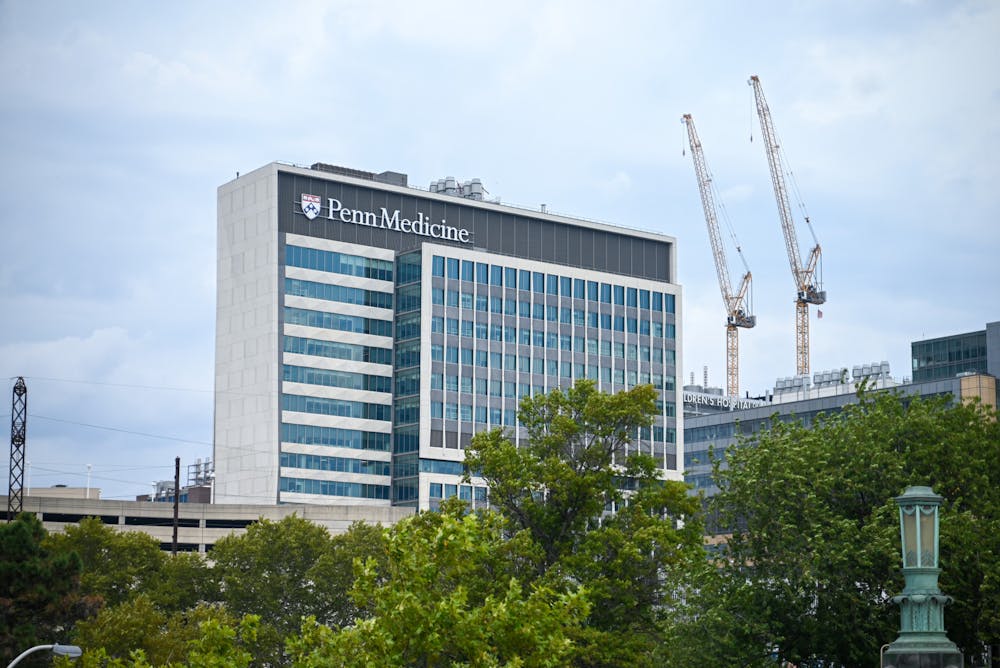Researchers at Penn’s Perelman School of Medicine recently discovered that higher air pollution exposure correlates with more severe cases of Alzheimer’s disease and clinical dementia.
Credit: Chenyao Liu
Researchers at the Perelman School of Medicine recently found that exposure to higher levels of air pollution is associated with more advanced forms of Alzheimer’s disease and clinical dementia.
The study — published on Sept. 8 — analyzed over six hundred autopsy-confirmed individuals in data collected by Penn’s Center for Neurodegenerative Disease Research Brain Bank from 1999 to 2022. The team included researchers from multiple Penn Med departments, utilizing funding from the National Institutes of Health and the National Institute of Environmental Health Sciences.
Penn professor Eddie Lee, who conducts research at the University’s Department of Pathology and Laboratory Medicine, spoke to The Daily Pennsylvanian about the significance of the study.
“If you look at the literature, air pollution — specifically PM2.5, which is particulate matter of 2.5 microns or smaller — has been implicated in cognitive decline [and] dementia,” Lee said. “We were able to estimate how much air pollution each person was exposed to before they passed away based on where they lived.”
Lee emphasized that his research “began decades ago” using cases from the past 20 years, which allowed the Penn team to effectively “study the relationship between various environmental factors and neurodegenerative diseases.”
He also mentioned the “importance of stable, long-term funding from the NIH,” allowing the research team to access the necessary materials.
“This brain bank has been funded this whole entire time by the NIH,” Lee said. “Without the NIH funding, this would never have happened.”
Holly Elser, a clinical fellow in the Division of Cognitive Neurology who collaborated with Lee, similarly described the relevance of Alzheimer’s research today.
Elser lived and studied in northern California during “some of the most historic wildfire seasons,” when she became particularly “interested in the health effects of wildfires.”
She noted that other studies, including her November 2024 paper on the association between wildfires and dementia diagnoses, also indicate “that wildfires are associated with dementia diagnoses.”
“Good research begets more research,” Elser said.
Both researchers noted limitations in the study that correspond to certain groups excluded from the analysis.
“It’s a very specific kind of person who ends up in an autopsy study,” Elser said. “They tend to be people who are highly educated [and] who are really invested in participating in clinical research.”
Elser described her hope to investigate the issue among a “slightly more diverse population.”
In the paper’s review process, according to Lee, the team attempted different measures of analysis — such as time and “socioeconomic status” — and found that “no matter how [they] analyze the data,” the relationship between air pollution and Alzheimer’s disease pathology was “significant.”
Sign up for our newsletter
Get our newsletter, DP Daybreak, delivered to your inbox every weekday morning.
According to Lee, Alzheimer’s disease is not the only clinical repercussion of pollution.
“There probably is an effect of air pollution on your heart and lungs and cerebrovascular disease,” Lee said. “I think air pollution probably has multiple different ways of affecting the brain, where exacerbation of Alzheimer’s disease is one of them.”
Lee concluded that while air pollution is probably “exacerbating or worsening” Alzheimer’s, it is “not necessarily causing it.” He cautioned against the “hysteria factor” associated with the study’s findings, noting that people should not “freak out” about developing dementia from “a little bit of air pollution.”
The Daily Pennsylvanian is an independent, student-run newspaper. Please consider making a donation to support the coverage that shapes the University. Your generosity ensures a future of strong journalism at Penn.

